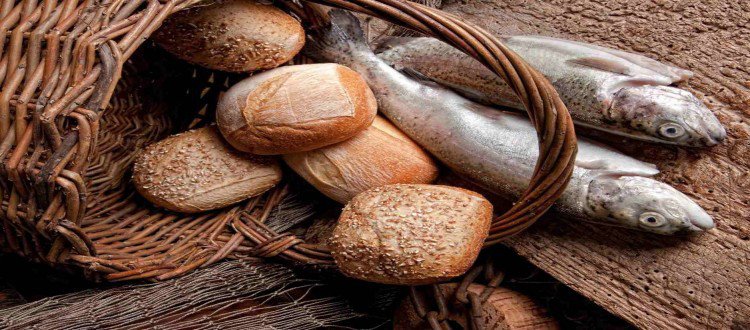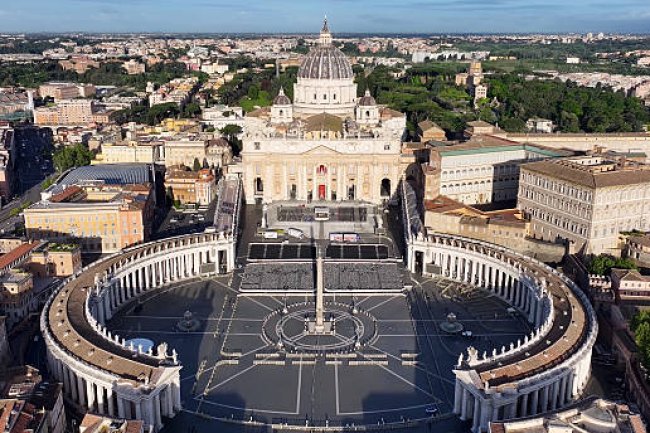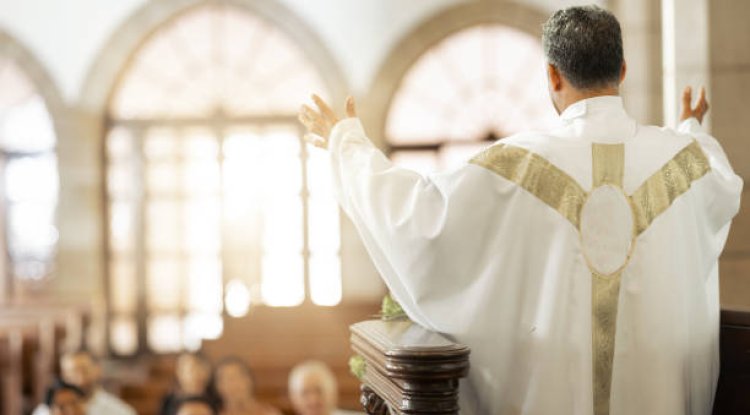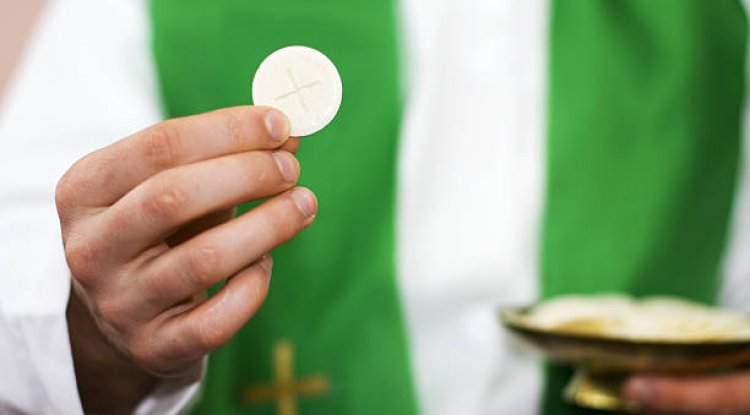A COMPASSIONATE HEART
HOMILY FOR SEVENTEENTH SUNDAY IN ORDINARY TIME, YEAR B. Readings: 2 Kings 4:42-44; Psalm 145; Ephesians 4:1-6 and John 6:1-15.

In the readings of last Sunday, we recall the image of Christ as the Good Shepherd, which brings to mind that there are bad shepherds who take advantage of the generosity of the gullible flocks in order to extort from them. This has led to trending issues of pastors scamming their members in a way of encouraging generosity and has left some Christians confused about their practice of generosity. While we condemn every form of exploitation and extortion, we reaffirm that the teachings of Christ are crystal clear and should not be compromised in any way. He taught us to be generous and compassionate, and to be sensitive to the plights of the needy as seen in today's readings.
The first reading tells of the man who came from Baal-shalishah, bringing the man of God bread of the first fruits... The man of God there was Elisha, who noticed the hunger of the people and had compassion on them. He said to his servant, “Give to the men that they may eat” (2Kings 4:43). In response, the servant said, “How am I to set this before a hundred men?” (v.43). Elisha said, “They shall eat and have some left” (v.44). This was a prefiguration of the multiplication of bread on the mountain. Elisha’s acts of generosity and compassion are evident in the reading. This very act echoes in our ears that there is joy and satisfaction in sharing, even in the little we have.
In the gospel, Christ went up the hills, and there he sat down with his disciples. Seeing the multitude coming to him, like Elisha, Christ was sensitive to their needs. He did not only care for their spiritual needs, he cared for their physical needs as well. He had compassion on them and said to Philip, “How are we to buy bread so that these people may eat?” (Jn 6:5). Similar to the servant of Elisha in the first reading who said, “How am I to set this before hundred men” (2Kg 4:43), Philip said, “Two hundred denarii would not buy enough bread for each of them to get a little” (Jn 6:7). It was Andrew, known for his act of bringing people to Jesus, who brought the young boy with five loaves and two fish. In a way, Andrew tells us, we too can do something for Jesus. Bringing something to Jesus becomes the basis for this miracle, which is the only miracle found in the four gospels.
The multiplication of bread was precisely the temptation of Jesus Christ at the desert just before his public ministry (turning stones into bread), and now, He speaks of himself as the bread of life. This made the people follow him when they lacked food, because he gave bread to them. The bread belonging to one (the lad) must become the food for all. The generosity of the boy became the motivation of a great miracle in his community. Our community can experience this blessing when we renounce selfishness and embrace the teachings of Christ on sharing.
There is also another interpretation to this Gospel, which draws our attention to generosity and sharing. The Jews at the time of Christ were seasoned travelers. They travelled with a small bag called kophinos with koshers in it (small food/bread) for the journey. These Jewish followers were motivated by the action of Jesus when they saw him sharing the boy’s barley loaves and fish. With this gesture of Christ, they brought out their bread from their bags and began to share with others. This is in conformity with the teachings of Christ on sharing/generosity. We recall the poor widow who gave all she had (Mark 12:41). In Luke 6:38, Christ said, “Give, and it will be given to you. A good measure, pressed down, shaking together and running over...” So, in this very act of sharing/giving, they all had enough to eat that the remnant filled up twelve baskets. With this act of sharing and Christ’ compassion for the people, they wanted to crown him as their King but he withdrew from them.
Like Jesus and Elisha, the readings urge us to have a compassionate heart for others, which will eventually lead us to generosity. A compassionate heart becomes the basis for empathy and sympathy. We need this virtue in order to understand what it means for others to be hungry, thirsty, sick, homeless, jobless and most importantly, to make us understand what it means to be human. Put differently, how do we respond to the needs of our community, our parish, families, friends and neighbours? Each time we respond with a compassionate and generous heart, we conform ourselves to the image of Christ, which St. Paul speaks of in the second reading.
Dear brothers and sisters, if you find it difficult to be generous to yourself and to others, begin to practice it today, repeat it tomorrow and gradually it becomes a habitual virtue. If you have been on it, extend your hands of sharing/generosity and God will miraculously multiply your blessings. Let us learn from Elisha, the little boy and Christ to always “Give them something to eat.”
Happy Sunday!
Fr. Ken Dogbo, OSJ
What's Your Reaction?



















